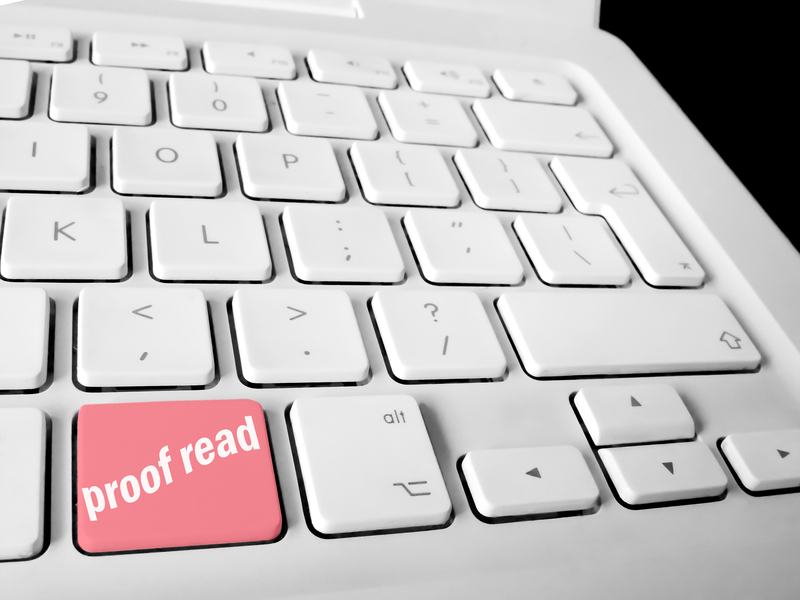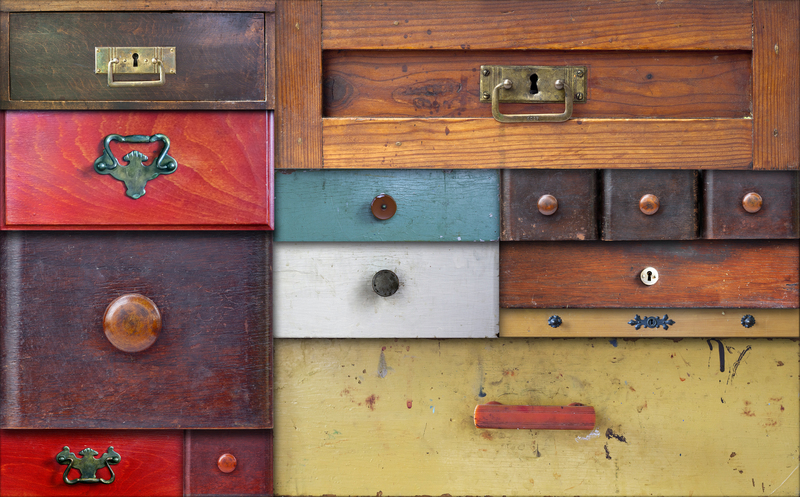Mental Clarity Awaits: De-cluttering as a Stress Relief Tool
Mental clarity is a precious asset in today's chaotic world. Many people find themselves overwhelmed by stress, anxiety, and constant distraction. What if you could unlock a clearer mind and decrease stress simply by de-cluttering your environment? De-cluttering as a stress relief tool is more than a home improvement trend--it's a powerful, science-backed strategy to boost mental wellness, emotional balance, and productivity. In this comprehensive guide, you'll uncover how tidying up isn't just about aesthetics--it's about transforming your life from the inside out.
Understanding the Link Between Clutter and Stress
Modern research underscores a direct connection between our environment and our mental state. Clutter refers to the untidy accumulation of items that overwhelms space, making it difficult to focus, relax, or find what you need. This state of disorder can manifest in your home, workspace, or even digital life--and it has proven effects on your mind.
How Clutter Creates Mental Chaos
- Overstimulation: Clutter bombards your mind with excessive stimuli, making it harder to concentrate.
- Increased Cortisol: Studies show that people with cluttered homes tend to have higher levels of the stress hormone cortisol.
- Decision Fatigue: Constantly filtering through unnecessary items drains your willpower and mental energy.
- Procrastination: A messy environment promotes delay and avoidance, fueling anxiety and stress.
Is clutter stealing your peace of mind? If you've ever felt frazzled upon seeing a pile of laundry or stacks of unfiled paperwork, you've experienced the cognitive load clutter creates. It builds a psychological background noise, making it hard to think clearly or relax.

Why De-cluttering Could Be the Ultimate Stress Relief Tool
When you de-clutter, you're not just tidying your surroundings--you're actively creating a foundation for mental clarity and well-being. Here's how organizing your space serves as an antidote to stress:
1. De-cluttering Reduces Overwhelm
A streamlined space soothes the mind. As you remove excess, your environment signals a sense of order and control, reducing the feelings of overwhelm and anxiety.
2. Enhances Focus and Productivity
An organized environment is proven to enhance concentration and productivity. It's easier to enter a state of flow and achieve your goals when there are fewer distractions around.
3. Supports Emotional Balance
Letting go of unwanted items generates a sense of accomplishment. This process is empowering, boosts confidence, and encourages positive emotions--all crucial for emotional resilience in stressful times.
4. Assists in Better Sleep Quality
De-cluttered bedrooms, in particular, contribute to improved sleep. Your brain has fewer distractions, promoting a state of calm that helps you fall asleep faster and enjoy more restful nights.
5. Fosters Mindfulness and Present-Moment Awareness
De-cluttering can be a mindful, meditative practice. The act of sorting, selecting, and organizing grounds you in the present moment. This form of active mindfulness is linked to lower stress levels and increased self-awareness.
Scientific Evidence: How De-cluttering Supports Mental Health
Empirical research highlights the impact of physical environments on psychological well-being. For example, a 2010 study published in the journal Personality and Social Psychology Bulletin found that women describing their homes as "cluttered" or "unfinished" experienced increased cortisol levels throughout the day. Meanwhile, those who described their homes as "restful" showed lower stress and improved mood.
- Neuroscience reveals that physical clutter disrupts your brain's ability to process information, leading to irritability and impaired decision-making.
- Behavioral studies link organized environments to better dietary choices, exercise habits, and self-discipline.
Simply put, a tidy space paves the way for a healthier, happier mind.
Benefits of De-cluttering: More Than Just a Tidy Home
The benefits of de-cluttering for stress relief extend into virtually every area of life:
- Improved Relationships: Sharing organized spaces reduces household friction and miscommunication.
- Greater Financial Clarity: When you're not constantly searching for lost items or replacing things you can't find, you save money and time.
- Enhanced Creativity: A clear space often inspires innovation and fresh ideas.
- Energy Conservation: De-cluttering reduces the mental fatigue of constantly managing chaos.
- Increased Self-Esteem : The act of taking charge in your environment cultivates pride and self-worth.
The lifestyle upgrades go well beyond what meets the eye. By making your physical surroundings more harmonious, you change the tone of your everyday life.
Practical Steps to Start De-cluttering for Mental Clarity
Feeling overwhelmed by the idea of overhauling your entire space? Don't worry. Even small, incremental changes offer major relief. Apply these expert-backed steps to start your journey toward mental clarity through de-cluttering:
1. Begin with One Area
Choose a manageable spot--your desk, a kitchen drawer, or closet shelf. Small victories build momentum and confidence for bigger projects.
2. Sort and Categorize
Divide items into three categories: keep, donate, discard. Be honest about what you use and cherish versus what contributes to stress.
3. Set a Timer
Work in focused intervals--try the Pomodoro technique (25 minutes on, 5 minutes off). This limits overwhelm and transforms de-cluttering into a stress-free habit.
4. Create Functional Systems
- Label storage bins for easy access
- Implement a daily "reset" routine to maintain order
- Designate "drop zones" for keys, mail, and essentials
5. Don't Forget Digital De-cluttering
Unsubscribe from spam, organize files, and clear desktop clutter. Digital chaos can be as distracting as physical mess--and the mental relief is just as real.
6. Involve Mindfulness
Practice presence as you de-clutter. Ask yourself: Does this item serve me or add stress? Gratitude and intention amplify the process's calming effects.
Common Obstacles and How to Overcome Them
De-cluttering for mental clarity and stress relief is not always easy, especially if you struggle with:
- Sentimental Attachment: Take photos of items with emotional value before letting them go.
- Perfectionism: Done is better than perfect. Progress relieves stress more than stalled expectations.
- Time Constraints: Consistency beats intensity. Five minutes a day makes a lasting difference.
- Family Resistance: Discuss the mental benefits and model positive habits. Lead by example.
Maintaining Your De-cluttered Sanctuary
Once you've created an oasis of order, developing maintenance habits is crucial for ongoing mental clarity. Try these strategies:
- Adopt the "One In, One Out" Rule: For every new item, let go of something old.
- Schedule Regular Check-ins: Monthly or seasonal reviews reinforce lasting organization.
- Cultivate Conscious Consumerism: Shop with awareness and avoid accumulating unnecessary goods.
- Engage Your Senses: Incorporate scents, textures, and soothing colors that further enhance your sense of calm.
Mental clarity awaits not just at the end of a de-cluttering spree, but in the peaceful routines that sustain it.
De-cluttering Beyond the Home: Work and Digital Spaces
The principle of de-cluttering for mental clarity does not end at your front door. Consider applying it to:
- Your Workspace: An organized desk fosters increased efficiency, focus, and job satisfaction.
- Your Email and Devices: Clean inboxes and organized files spare you from digital overwhelm and information overload.
- Your Routines: Simplify your daily schedule to prioritize intentional living and self-care.
Every area of your life benefits from thoughtful simplification.
Tools and Resources for Effective De-cluttering
If you're eager to begin your journey to mental clarity through strategic de-cluttering, consider these popular resources:
- Marie Kondo's KonMari Method: Focus on what "sparks joy" and fosters gratitude for your possessions.
- The Minimalists: Embrace minimalism as a route to a richer, less stressful life.
- Apps such as Trello or Evernote: Digitize organization and tame both your schedule and files.
- Local Donation Centers: Give unwanted items a new life, reducing waste and supporting your community.

When to Seek Extra Help
Sometimes, clutter is tied to deeper issues such as depression, anxiety, or chronic disorganization. If the task feels insurmountable, consider enlisting:
- Professional organizers for custom solutions and accountability
- Therapists who specialize in hoarding disorder or emotional attachment to objects
- Support groups that offer community, understanding, and encouragement
There's no shame in reaching for support--the journey toward mental clarity and stress relief is unique for everyone.
Conclusion: The Path to a Clearer Mind Begins at Home
In a world that overvalues busyness and material abundance, choosing to de-clutter for stress relief is an act of self-respect and intention. The simple process of clearing your space transforms not only your home or office but your entire outlook on life. Mental clarity awaits those willing to let go of what no longer serves them.
Are you ready to reclaim your peace of mind? Begin today--one drawer, one file, or one thought at a time--and discover the life-changing magic of a clutter-free, mentally clear, and stress-free existence.
Remember: De-cluttering is not a destination. It's a powerful tool for lifelong mental clarity, stress relief, and happiness. Start now--your refreshed mind and spirit will thank you.